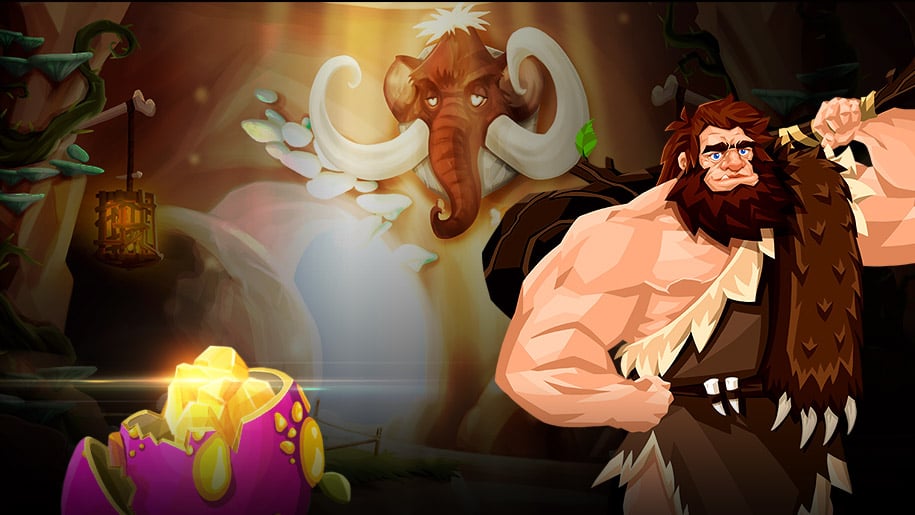



TOP SELECTION OF ONLINE CASINO GAMES
Lucky Nugget casino offers an array of casino games, ranging from classic table titles to modern online slots, providing players with a diverse and engaging gaming experience. The online casino’s game selection includes the following popular genres:
Online Slots
- Classic Slots: These traditional slot machines typically contain 3 or 5 reels, filled with classic symbols like fruit, sevens and gold bars for a nostalgic experience, for example Wacky Panda.
- Video Slots: As a modern casino online offering, these themed, feature-packed titles like Amazing Link™ Zeus boast superior graphics, multiple paylines and immersive bonus rounds.
- Progressive Jackpot Slots: Choose between progressive jackpot slots with huge payout potential and Must Win Jackpots that pay out daily.
Table and Live Casino Games
- Blackjack: The classic game of 21 offers a range of titles such as Atlantic City Multi-Hand Blackjack, and European Blackjack.
- Roulette: Choose from popular variants like French, European and American Roulette, along with slots-themed options.
- Baccarat: Bet on the player or the banker in riveting titles like Dragon Tiger and Real Baccarat with Sarati.
- Video Poker: Experience an electronic version of the classic 5-card draw in titles like Deuces Wild, Joker Poker and Jacks or Better.
- Sic Bo: Bet on the outcome of the roll of the dice in classic Chinese-inspired titles.
- Live Blackjack: Engage with live dealers in popular titles like Live Exclusive Blackjack and Live One Blackjack.
- Live Roulette: Enjoy the thrill of the spinning wheel in Live Speed Roulette, Live Mega Roulette and more.
- Live Game Shows: Join the hosts as you watch the thrills unfold in titles like Live Mega Wheel and Live Treasure Island.
CASINO PROMOTIONS ONLINE
The Lucky Nugget community is very welcoming and, once you’re a member, you can enjoy your stay with a triple deposit welcome offer. Get started with a minimum $1 deposit and get 40 Bonus Spins. Extend your stay with 100 Bonus Spins for as little as $5, and continue the adventure with a 150% Match Bonus up to $200. Enjoy your stay!
SECURE AND RESPONSIBLE
SECURE AND RESPONSIBLE
At Lucky Nugget, security is always a top priority, with state-of-the-art encryption technology that safeguards all player data and casino transactions online. Additionally, the casino promotes responsible gaming through various measures such as self-exclusion options, deposit limits, and access to helpful resources for problem gambling assistance, ensuring that you can enjoy a safe gaming environment all year round.

MOBILE CASINO GAMING ON THE GO
With its user-friendly mobile casino platform, meticulously optimised for smartphones and tablets, Lucky Nugget allows you to have a zero-compromise, top-quality gaming experience, while on the move. Moreover, its easy navigation lets you access your favourite games, from mobile slots to live dealer titles, seamlessly and conveniently with just the touch of your screen. Simply take the entertainment with you, wherever you go – it’s the mobile casino promise.
Sign UpONLINE CASINO FAQs
Is it safe to gamble at an online casino? 
Yes, it is safe if you play at a licensed online casino like Lucky Nugget Casino where security and privacy are prioritised. With encryption technology to safeguard all transactions and data, your funds and personal information will be protected.
How do you know if a casino is legit? 
A few key factors will determine the legitimacy of an online and mobile casino. Firstly, look for a reputable licence from a recognised gaming authority – this will ensure its adherence to strict regulations. Secondly, search for certification from an independent auditor like eCOGRA – this will confirm that it follows fair gaming practices.
Can I play at this online casino for real money? 
Yes, you can place real money bets on all casino games online at Lucky Nugget. Once signed up, simply click or tap on the Bank icon, choose a secure deposit method and follow the easy prompts to fund your account. Thereafter you’re ready to place real money wagers.
Does Lucky Nugget have online support? 
No question is too big or small for Lucky Nugget’s professional customer support team. Whether playing via the mobile casino platform or online, you can rest assured that help is only a quick tap or click away at Lucky Nugget. Logged in? Simply navigate your way to the ‘Help Centre’ link, via which you’ll be able to click or tap on ‘Live Chat’ for prompt and knowledgeable assistance from a highly skilled support agent. Logged out? You’ll find the ‘Live Chat’ link on the Contact Us page. Take note – email support is also available on request.



































